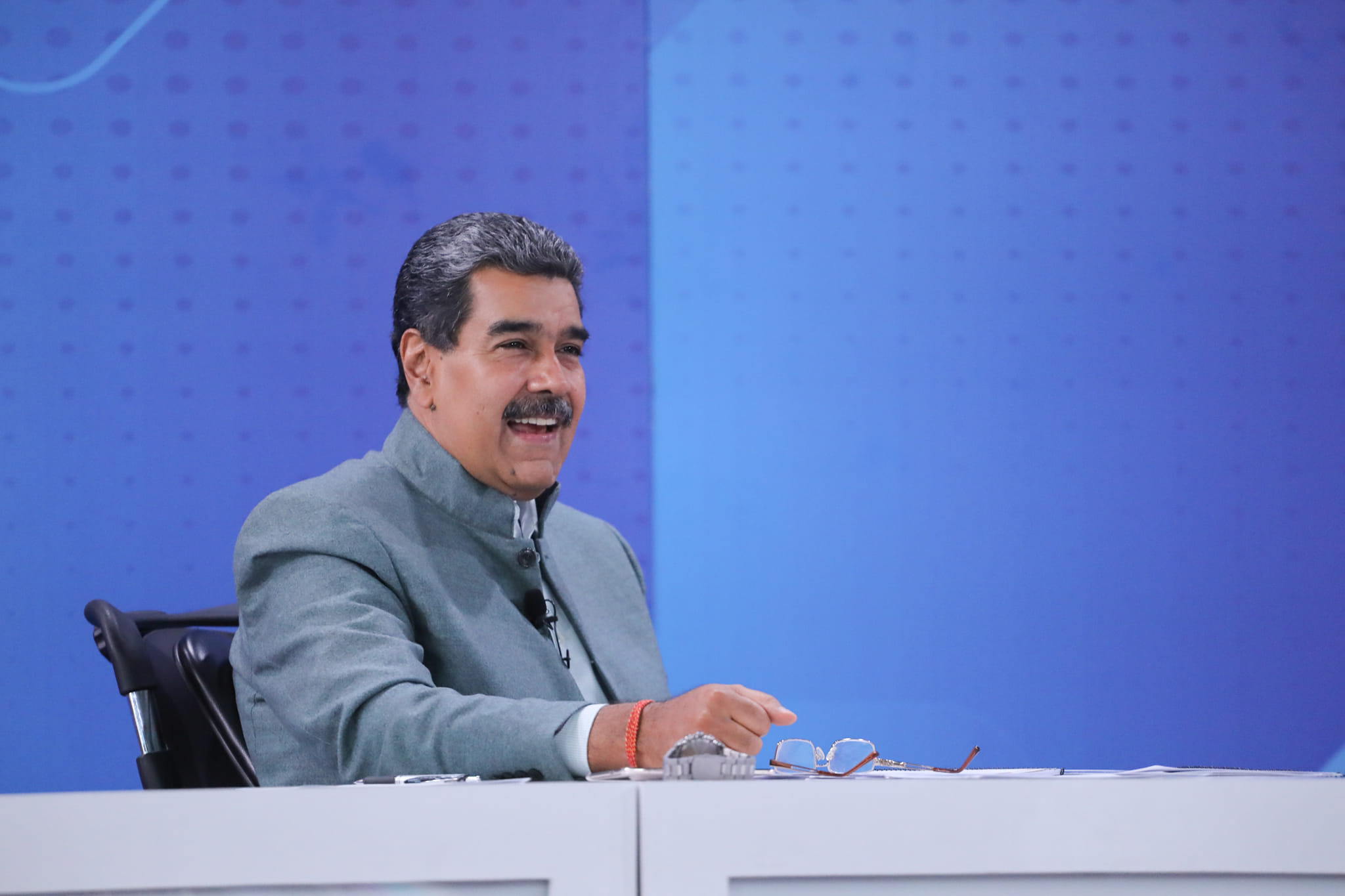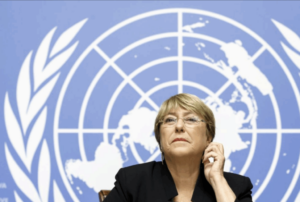
Published 07/30/2024 16:56 | Edited 07/30/2024 16:57
After Kamala Harris’ abstract position: “We must respect the will of the Venezuelan people. Despite the many challenges, we will continue to work for a more democratic, prosperous and secure future for the people of Venezuela”, it can be interpreted that the US has no political will to intervene directly or militarily in Venezuela. Meanwhile, media destabilization is constant and present through a media blockade and attacks of lies and manipulated narratives.
The opposition discourse of María Corina and Edmundo has been constructed not only with media power, but also with direct support from the Latin American right, such as former presidents Macri, Miguel Ángel Rodríguez (Costa Rica), Jorge Quiroga (Bolivia), Vicente Fox (Mexico) and Mireya Moscoso (Panama) and presidents such as Javier Milei (Argentina), Rodrigo Chaves Robles (Costa Rica), Dina Boluarte (Peru), Laurentino Cortizo (Panama), Luis Abinader (Dominican Republic) and Luis Lacalle Pou (Uruguay). These are also responsible for destabilization, crimes and destruction in their own countries and seek to intervene and pressure the Venezuelan scenario, because geopolitically they see that the overthrow of Bolivarian Venezuela would be an advance on the regional map for the right. It is clear that political projects aligned with the US and that defend neoliberalism have no interest in the continuity of the complex popular project led by Maduro, where the largest oil well in the world promotes the construction of Bolivarian socialism.
The dishonest media and political strategy of the Latin American right is already well-known in several destabilization processes, such as the coups of recent decades in Honduras, Paraguay, Brazil and Bolivia. Recently, we were victims of democratic attacks in Peru, Ecuador, Bolivia and in Brazil in the attempted coup of January 8. We are left to ask ourselves why the “progressives” and part of the Latin American left are afraid to learn about and support Venezuelan socialism?
This phenomenon can be called Boric syndrome, a mongrelism that borders on arrogance in ignoring the imperialist factors of interference in the region. Boric represents those who believe in the formula that progressive discourse can guarantee real and structural advances for Latin American society. He ignores the fact that revolutionary processes implicitly confront the elite and their national and international interests, and that there is no liberal democracy in the region that politically supports the confrontation of these power structures. Is this naivety or opportunism? Progressive discourses that support imperialist interests with agendas that are sidelined to the structural ones, such as riding a bicycle to save the world from climate change.
In Venezuela, Bolivarian socialism confronts all the deepest structures, from a colonial elite to oil-hungry imperialism. Furthermore, the Bolivarian process has sociologically transformed the Venezuelan social structure, politicizing the poorest and most excluded classes, empowering them as much as the bourgeoisie is empowered under capitalism. In Brazil, the Boric syndrome is present in academia, and in some political spaces, there is a huge lack of awareness of the democratic advances of the 1999 Bolivarian constitution, the result of the government of Hugo Chávez and continued by Nicolás Maduro. This constitution innovates in participatory democracy and politicizes the people based on their awareness of their place in the political process. The Venezuelan people have taken control of the political process, and this is the only answer that explains the popular support for Nicolás Maduro’s government even in the most difficult moments of sanctions and political violence promoted by the United States.
It is undeniable that unilateral economic sanctions against Venezuela have promoted poverty, migration and economic chaos. But it is indeed impressive and even incomprehensible to some that the Venezuelan people, with their sovereign and anti-imperialist political consciousness, have sustained the political process in the most difficult moments.
In a scenario where Latin America continues to face significant socioeconomic challenges, Venezuela once again challenges the limited reasoning of those dominated by Boric syndrome. The Economic Recovery Program: Strategic Responses has produced a revival of the Venezuelan economy. In 2020, the country faced a drastic drop in oil revenues, which totaled only 743 million dollars, a 99% reduction compared to the 50 billion dollars received in 2012. This was the worst moment of international sanctions. To address this crisis, in August 2018, President Nicolás Maduro launched the Economic Recovery Program, a strategic response to the country’s main economic problems. The program includes four structural measures to stabilize the Venezuelan economy: stimulating national production; increasing tax collection; boosting non-traditional exports; and supporting entrepreneurs.
Today, the Venezuelan economy is responding to these impulses and, in the first quarter of 2024, it grew by more than 7%, adding up to 12 consecutive quarters of growth. Inflation was reduced to 1.0% in June 2024, the lowest rate in 39 years. The bolivar has strengthened, and the value of the dollar is the most stable in the last 13 years. Venezuela now consumes mostly domestic products, reducing food imports to just 15%. These advances reflect a recovering economy and a country that is gradually recovering its capacity for domestic production and consumption.
Unfortunately, in a scenario of coup plotters and naive people, the Venezuelan electoral process has been strongly questioned and attacked. For weeks, candidates Edmundo Gonzalez and María Corina have signaled that they will not recognize the result and speculated fraud. On July 28, after a peaceful and calm presidential election, as soon as the result of Nicolás Maduro’s victory with 51.02% was announced, irresponsible speculations of fraud began. On July 29, María Corina, in a coup plotting frenzy, declared that the elected president of Venezuela is Edmundo Gonzalez with 73% of the votes.
The liberal media is ecstatic about the weakening and exposure of the Venezuelan democratic process. Unfortunately, this movement only strengthens political violence and radicalization, scenes that we are witnessing today on the streets of Venezuela, radicalized and violent demonstrations calling for the non-recognition of the election.
Right-wing political violence and democratic attacks are not only harmful to the Venezuelan people, but to the entire region, which is implicitly linked to the correlation of political forces. Brazil and other Latin American countries must be vigilant about the Venezuelan democratic process, closely monitor attacks and position themselves against coup attempts. The election in Venezuela should be seen by Brazil as a crucial indicator for the region. This election not only reveals the strength of the popular mobilization of the Venezuelan left, but also demonstrates the capacity for political and media intervention of the United States and the far right and right wing in the region.
.
Source: vermelho.org.br

